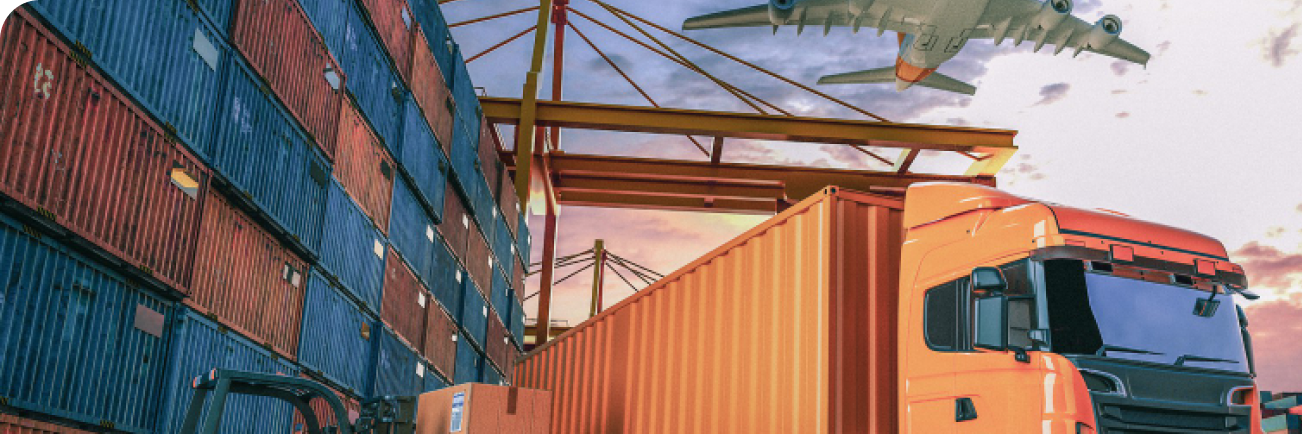In today’s interconnected world, businesses rely on efficient and reliable transportation of goods across borders to meet customer demands and expand their reach. Freight forwarding plays a crucial role in facilitating global trade by managing the logistics and transportation of goods from one location to another. In this blog, we will delve into the concept of freight forwarding, its types, its significance in international commerce, and the key benefits it offers to businesses.
What is Freight Forwarding?
When looking at Freight forwarder, is a service provided by logistics companies that specialize in coordinating and managing the shipment of goods on behalf of businesses or individuals. These companies act as intermediaries between shippers and carriers, handling various aspects of the transportation process, including documentation, customs clearance, warehousing, and the selection of the most efficient and cost-effective shipping routes.
Different Types of it
Depending on the specific requirements of your shipment, different types of shipment forwarding services are available. Some of the common types of freight forwarding to help you choose the right solution for your shipping needs.
Air Freight Forwarding
This type of forwarding involves the transportation of goods by air, offering speed and efficiency for time-sensitive shipments. This option is ideal for high-value or perishable goods that require fast delivery. Air freight forwarders have established relationships with airlines and can handle customs clearance, documentation, and cargo tracking for seamless transportation.
Ocean Freight Forwarding
This forwarding is the most commonly used method for transporting goods internationally. It involves the shipment of cargo in containers via ocean vessels. Ocean freight forwarders have extensive knowledge of international shipping regulations, port operations, and container logistics. They can handle the complexities of customs clearance, and documentation, and arrange for efficient transport across different ports.
Road Freight Forwarding
This type of forwarding involves the transportation of goods by land, using trucks or other road vehicles. This option is suitable for domestic or cross-border shipments within a specific region or country. Road freight forwarders have expertise in navigating road networks, optimizing routes, and ensuring timely delivery. They handle tasks such as load consolidation, customs clearance, and tracking of shipments.
Rail Freight Forwarding
This type of forwarding utilizes trains as a mode of transportation for shipping goods. It is often a cost-effective option for land-based transportation over long distances. Rail freight forwarders coordinate the movement of cargo, manage container loading and unloading at rail terminals, and ensure smooth intermodal transfers between rail and other transportation modes.
Intermodal Freight Forwarding
This type of forwarding combines multiple modes of transportation, such as road, rail, air, and ocean, to optimize the shipping process. This approach allows for efficient and flexible movement of goods, utilizing the strengths of each mode to achieve cost savings and improve delivery timelines. Intermodal freight forwarders have expertise in coordinating various transport methods and ensuring seamless transitions between different modes.
Project Cargo Forwarding
Project cargo forwarding is specialized freight forwarding tailored to handle complex and large-scale shipments. It involves the transportation of oversized or heavy cargo, such as industrial equipment, machinery, or infrastructure components. Project cargo forwarders have the expertise to plan, manage, and execute the logistics for these unique shipments, including route planning, specialized packaging, and securing permits.
The Role of a Freight Forwarder

Freight forwarders serve as valuable partners for businesses engaged in international trade. They offer a range of services that simplify the complex logistics involved in moving goods from one country to another. Let’s explore some key roles played by freight forwarders.
Transportation Planning
Freight forwarders have an in-depth understanding of various transportation modes, including air, sea, road, and rail. They analyze the unique requirements of each shipment and select the most suitable and efficient transportation method to optimize cost and delivery time.
Documentation and Customs Clearance
Navigating the extensive documentation required for international shipping can be daunting. Freight forwarders are well-versed in the paperwork involved, such as commercial invoices, packing lists, bills of lading, and customs documentation. They ensure all necessary documents are accurately prepared, processed, and submitted to facilitate smooth customs clearance.
Carrier Selection and Negotiation
Freight forwarders leverage their network and industry expertise to identify reliable carriers that can handle the specific transportation requirements of each shipment. They negotiate competitive rates on behalf of their clients, ensuring cost savings while maintaining service quality.
Risk Management
Managing risks associated with international shipping is a critical aspect of freight forwarding. Freight forwarders assess potential risks, such as weather conditions, political instability, or customs regulations, and implement strategies to mitigate them. They also provide cargo insurance options to protect their clients’ goods against loss or damage during transit.
Warehousing and Distribution
Many freight forwarders offer warehousing and distribution services as part of their comprehensive logistics solutions. They provide secure storage facilities, manage inventory, and handle the distribution of goods to their final destinations, ensuring efficient supply chain management.
Benefits of Freight Forwarding
Engaging a freight forwarder can offer numerous advantages to businesses involved in international trade
Expertise and Industry Knowledge
Freight forwarders possess extensive knowledge of international shipping regulations, documentation requirements, and customs procedures. Their expertise helps businesses navigate the complexities of global logistics, ensuring compliance and avoiding costly errors.
Time and Cost Efficiency
By leveraging their network and experience, freight forwarders optimize transportation routes, negotiate competitive rates, and streamline the logistics process. This leads to time and cost savings for businesses, allowing them to focus on their core operations.
Global Network
Freight forwarders have established relationships with carriers, customs authorities, and other stakeholders across the globe. This extensive network enables them to handle shipments to and from various countries, ensuring smooth operations even in unfamiliar markets.
Risk Mitigation
Freight forwarders proactively identify and mitigate risks associated with international shipping, safeguarding businesses from potential disruptions and losses. Their expertise in insurance options provides an additional layer of protection for goods during transit.
Peace of Mind
Outsourcing the logistics responsibilities to a freight forwarder allows businesses to concentrate on their core competencies. With professionals managing the transportation process, businesses gain peace of mind, knowing that their goods are in capable hands.
Conclusion
In conclusion, Freight forwarding plays a vital role in facilitating smooth and efficient global trade. By leveraging the expertise and resources of freight forwarders, businesses can overcome the complexities of international logistics, streamline their supply chain, and expand their global reach. From transportation planning and documentation to risk management and cost optimization, freight forwarders provide comprehensive solutions that enhance efficiency and reliability in the world of international commerce.
Freight forwarding, as exemplified by Galaxy Freight, plays a vital role in streamlining global trade and logistics. Their comprehensive range of services, including premium air freight, ocean freight, road transport, ISO tank services, and value-added support, demonstrates their commitment to providing unparalleled quality. By simplifying the shipping process, handling documentation, and offering expert guidance, Galaxy Freight ensures that businesses can focus on their core operations while trusting their cargo to be transported seamlessly and efficiently.
For further information or to discuss your specific shipping needs, don’t hesitate to get in touch with Galaxy Freight, the leading freight forwarder in India.



